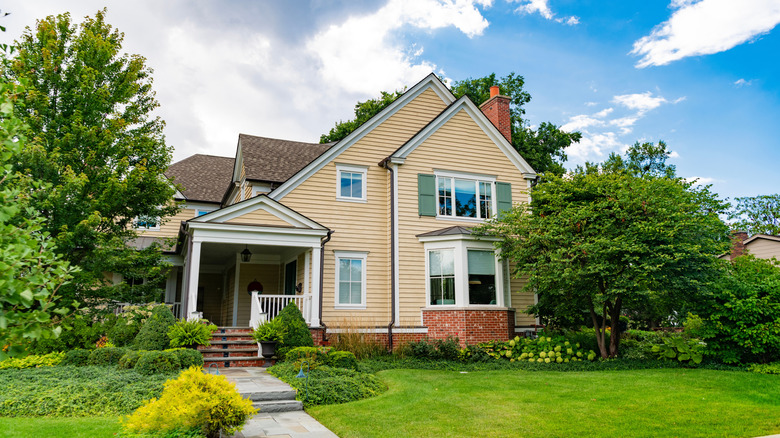The Biggest Expense Of Most Vacations Is One You're Almost Certainly Leaving Out Of Your Budget
Taking a vacation isn't cheap, even if you keep your budget tight while traveling. According to recent data from Squaremouth Travel Insurance, the average American traveler will spend at least $7,249 on a trip in 2025. Fortunately, there are numerous guides offering advice on how to save money. For instance, if you're going on a cruise, there's one mistake at the cruise terminal that could cost you thousands. And if you need to fly to your destination, it's worth checking out this low-cost airline named the best in America for 2025. Flights are an obvious big travel expense, with people spending upwards of $250 for domestic round-trip tickets, while hotels typically cost $230 or more in the U.S. But there's one expense a lot of people don't consider when traveling, and it's a doozy.
The cost of living in and maintaining your home, whether it's an owned or rented property, should be considered when budgeting for your next vacation. People generally leave their homes to sit empty when they go on holiday for a few weeks. However, even two weeks can prove costly depending on your monthly mortgage or rent.
At the time of this writing, the average monthly rent for property in America is $2,100. If you consider the price of rent you'd pay each week, that comes to about an additional $525 to keep in mind while budgeting. For two weeks, it increases to $1,050. If you've bought your home and are paying off a mortgage, this cost could vary depending on where you live. On average, people in California pay $2,865 per month on their mortgage. That's a little over $1,430 for a two-week vacation. Clearly, the expense of your home while you're away can easily cut into your vacation expenses.
How to reduce home expenses while on vacation
For anyone focused on their finances, learning about yet another travel expense could save stress and worry later on. There are also ways to approach your home when going away that could reduce or even completely erase this expense. Some frequent travelers choose to buy or rent less expensive homes so they have more disposable income to spend on luxuries, such as travel. This might mean opting to live in a state with lower mortgage rates, such as Alabama, Indiana, and Mississippi.
Alternatively, it is possible to rent out or sublet your home while you're away, which is a particularly good option if you're traveling for a longer period. You will just need to check your lease agreement beforehand to make sure it's allowed. If you've bought your home, you will need to check the mortgage agreement. Doing this will create more admin and maybe more initial costs to ensure your home is ready for renters. But if someone else can cover most of or all of your house payments while you're away, you could spend more on your vacation.
However you decide to approach it, having your home expenses as part of your travel budget should ensure you don't end up overspending while you're away. Financial Samurai, an online money advisory, recommends only spending between 2.5 and five times the cost of your home on a vacation. So if your home expense is going to be $1,430 for a two-week holiday, you should only spend $3,575 to $7,150 on your actual trip (e.g., flights, accommodation, spending money) for a more ideal financial outcome. Anyone who's money-conscious should also try to avoid this popular travel upgrade that isn't worth the extra cost.

